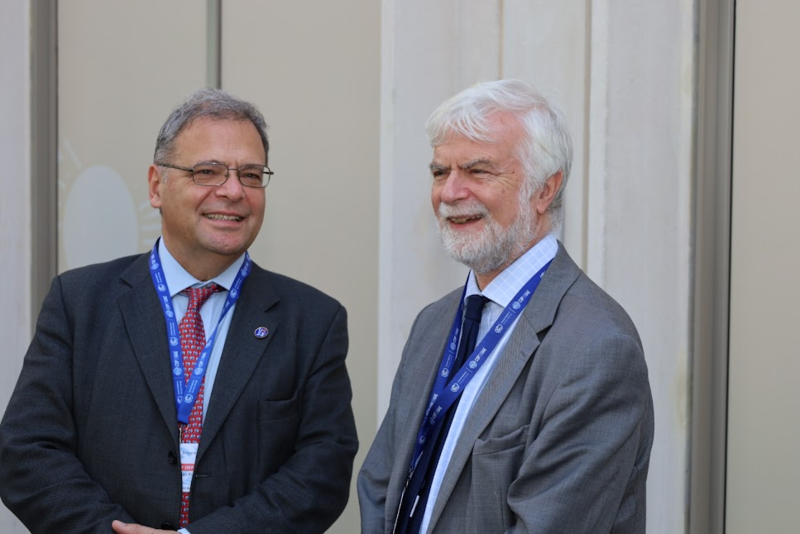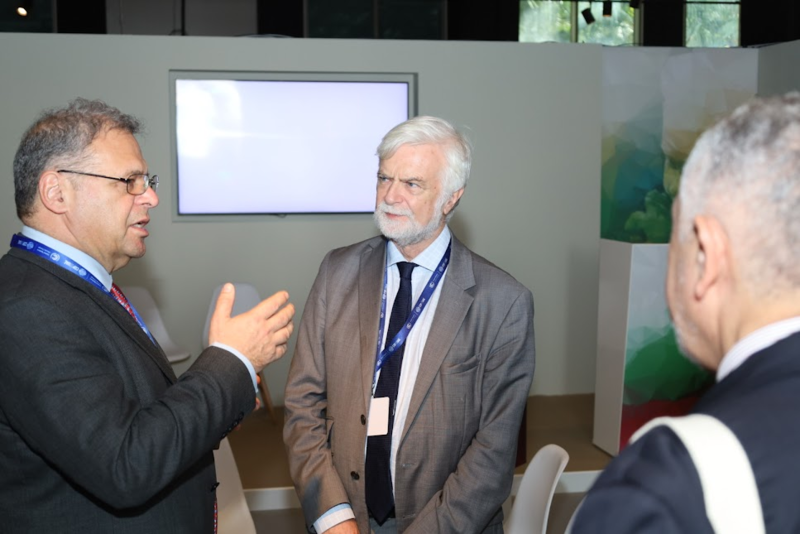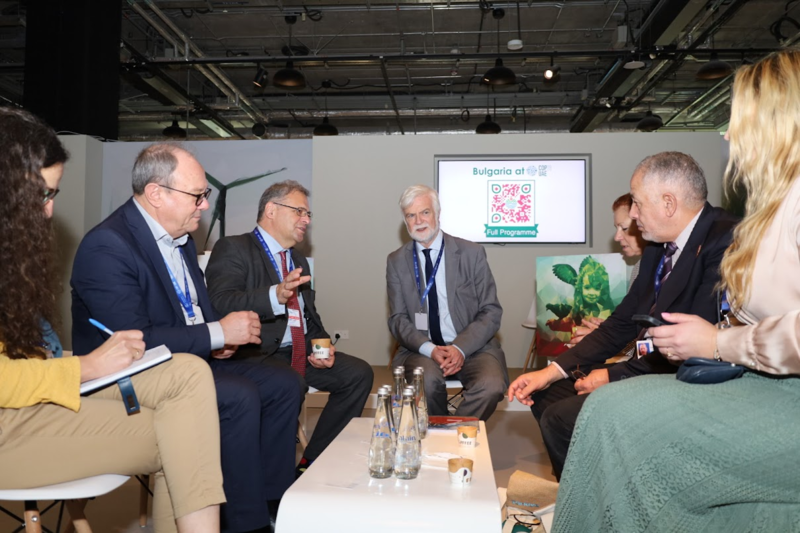Bulgaria to host the 61 IPCC session in July 2024
22 Mar, 2024 | 16:19The 61st session of the Intergovernmental Panel on Climate Change (IPCC) will be held in Sofia from 26 July to 2 August 2024. This was announced to journalists by the Minister of Environment and Water Julian Popov upon receipt of the official letter of approval of Bulgaria as a host for the event.
"The election of Bulgaria as a host for a regular session of the IPCC is a recognition of the efforts made that have undoubtedly put Bulgaria on the map of global climate diplomacy. The opportunities associated with hosting the IPCC session are not only at the political and diplomatic level, but also at the scientific level in terms of invaluable exchange of experience and contacts. They provide a good chance for closer cooperation of Bulgarian scientists from the NIMH, BAS, and universities and help to understand where all the processes related to the Green Deal start - they start from the IPCC reports," said Minister Popov.
The meeting of the most influential international scientific organization in the field of climate change is expected to bring together hundreds of scientists and government delegates to discuss key topics related to the process of securing the scientific input on which countries base their climate policy planning and implementation decisions. During the July session, the Panel will discuss and endorse the outlines of two reports that will be produced: a Special Report on Climate Change and Cities and a Report on Short-Term Climate Forcers.
Bulgaria declared its intention to host this prestigious meeting during the international climate conference held in Dubai, UAE, in the framework of a bilateral meeting between Minister Julian Popov and Jim Skea, IPCC Chair. Officially our country submitted its application to host during the 60th session of the IPCC held in January 2024 in Istanbul, Turkey.
For Bulgaria and the global community, this forum not only provides an opportunity to share the most up-to-date scientific findings and conclusions on climate change, but underlines the commitment of countries to a sustainable future for the planet. The upcoming IPCC session in Sofia is an important opportunity for Bulgaria to strengthen its role in the fight against climate change and to share its efforts and best practices with other countries.
IPCC is the UN body responsible for assessing the science on climate change. Composed of 195 member countries, the IPCC plays a key role in providing scientific and analytical assessments of climate change trends and impacts on ecosystems.
Established in 1988, the IPCC is responsible for systematizing, analyzing and communicating scientific information related to the state of the planet's climate, projections and measures needed to mitigate global warming and adapt to the changes that are occurring. The Panel's regular reports serve as the scientific basis for international climate cooperation and for the negotiation process of countries under the United Nations Framework Convention on Climate Change (UNFCCC). In 2007, the IPCC was awarded the Nobel Peace Prize.


